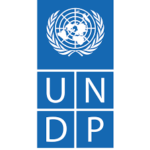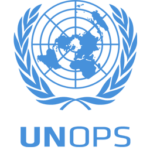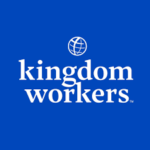Are you searching for Water Management, Sanitation and Hygiene (WASH) jobs in Malawi? Ntchito.com is your premier destination for the most current and active positions within Malawi’s crucial WASH sector. Whether you’re interested in roles within government water departments, non-governmental organizations (NGOs), international agencies, research institutions, or community-based organizations in major cities like Lilongwe and Blantyre, our platform connects you with leading employers seeking dedicated and skilled WASH professionals. Advance your career by exploring diverse opportunities in water resource management, sanitation project implementation, hygiene promotion, public health initiatives, and more within Malawi’s evolving WASH landscape. Additionally, enhance your expertise with Courses & Trainings (Funded) and gain practical experience through Internship Opportunities. Stay ahead in your field with Ntchito.com’s comprehensive listings and resources tailored to Water Management, Sanitation, and Hygiene professionals.
FAQs for Water Management, Sanitation and Hygiene Jobs in Malawi
What educational qualifications are required for Water Management, Sanitation and Hygiene positions in Malawi?
Water Management, Sanitation and Hygiene (WASH) roles in Malawi typically require a strong educational foundation in relevant disciplines. Candidates should possess at least a bachelor’s degree in Environmental Science, Civil Engineering, Public Health, Water Resource Management, or a related field from an accredited institution. For advanced positions, such as WASH Project Managers, Sanitation Engineers, or Public Health Advisors, a master’s degree or specialized certifications (e.g., Certified WASH Professional or Environmental Health Specialist) may be necessary. Additionally, holding certifications from recognized institutions can significantly enhance a candidate’s qualifications and competitiveness in the job market. For those seeking further education, explore Bachelors Scholarship and Masters Scholarship opportunities to support your academic advancement.
Beyond formal education, practical experience is highly valued. Employers seek individuals with hands-on experience through internships, volunteer work, or previous employment in WASH projects, water utilities, or public health programs. Participation in Internship Opportunities can significantly strengthen your application by providing real-world experience and networking opportunities within the WASH sector. Continuous professional development through Courses & Trainings (Funded) is also recommended to stay updated with the latest methodologies and best practices in water management and sanitation.
How is the demand for Water Management, Sanitation and Hygiene professionals evolving in Malawi’s economy?
The demand for Water Management, Sanitation and Hygiene (WASH) professionals in Malawi is steadily increasing, driven by the country's ongoing efforts to improve public health, enhance water infrastructure, and achieve sustainable development goals. As Malawi continues to address challenges such as water scarcity, inadequate sanitation facilities, and hygiene-related health issues, the need for skilled WASH professionals in both public and private sectors grows correspondingly. This trend is further fueled by the rise of international organizations and NGOs focused on water and sanitation projects, creating a broad spectrum of job opportunities for qualified WASH experts.
In addition to traditional roles in government and utility companies, there is a growing demand for professionals adept in modern water management technologies, sustainable sanitation solutions, and community-based hygiene promotion. The integration of technology into WASH practices, including the use of data analytics for water resource management and digital tools for sanitation monitoring, is creating new opportunities for those with expertise in these areas. Staying informed about these industry trends through resources like Job in Malawi and Energy Sector Jobs in Malawi can help candidates identify emerging opportunities and align their skills with market demands. Furthermore, the increasing emphasis on climate-resilient water management and inclusive sanitation initiatives is enhancing the value of WASH professionals in both public and private sectors.
What key skills and competencies are essential for success in Water Management, Sanitation and Hygiene roles in Malawi?
Success in Water Management, Sanitation and Hygiene (WASH) roles in Malawi requires a combination of technical expertise and soft skills. Key technical skills include proficiency in water resource management, sanitation system design, and public health principles. Candidates should be adept at using GIS software for mapping water resources, designing efficient sanitation facilities, and implementing hygiene promotion campaigns. Additionally, expertise in project management, budgeting, and data analysis is essential for planning, executing, and evaluating WASH projects effectively.
On the soft skills front, employers value excellent communication and interpersonal abilities, as WASH professionals often interact with diverse stakeholders, including government officials, community leaders, beneficiaries, and international partners. Critical thinking and problem-solving skills are crucial for developing innovative solutions to complex water and sanitation challenges and addressing unforeseen project issues. Organizational and time management skills are important for handling multiple projects, meeting deadlines, and ensuring the timely delivery of services. Additionally, cultural sensitivity and the ability to work in diverse and sometimes challenging environments are essential for fostering inclusive and sustainable WASH initiatives. Enhancing these skills through Courses & Trainings (Funded) and Soft Skills Training can make candidates more attractive to potential employers and facilitate career advancement.
How can Water Management, Sanitation and Hygiene professionals in Malawi advance their careers and stay competitive in the job market?
Career advancement for Water Management, Sanitation and Hygiene (WASH) professionals in Malawi involves a strategic combination of education, skill development, and networking. Pursuing advanced degrees or specialized certifications can open doors to higher-level positions and specialized roles within the WASH sector. Engaging in continuous learning through Training Opportunities helps professionals stay updated with the latest industry trends, technological advancements, and best practices in water management and sanitation.
Networking is another critical component for career growth. Building connections with industry peers, attending WASH conferences, and participating in professional associations can provide valuable insights and job leads. Additionally, gaining experience in diverse roles within WASH projects, such as working in different geographic regions, managing large-scale initiatives, or specializing in specific areas like water quality monitoring or sanitation engineering, can enhance a professional’s versatility and marketability. Utilizing resources like Consultancy Projects and Internship Opportunities can also provide practical experience and facilitate transitions into more advanced roles. Furthermore, developing a strong personal brand and leveraging online platforms, such as LinkedIn, can increase visibility and attract potential employers
What are the common challenges faced by Water Management, Sanitation and Hygiene professionals in Malawi, and how can they overcome them?
Water Management, Sanitation and Hygiene (WASH) professionals in Malawi often encounter challenges such as limited funding, resource constraints, and the complexities of implementing projects in diverse and sometimes remote settings. Limited access to comprehensive data sources and research funding can hinder the ability to conduct thorough assessments and develop effective WASH solutions. Resource constraints, including inadequate infrastructure and outdated technological tools, can impact the efficiency and effectiveness of WASH programs, making it essential for professionals to be resourceful and innovative in their work.
Additionally, implementing WASH projects in remote or underserved areas poses logistical challenges, such as transportation issues, lack of infrastructure, and difficulties in reaching target populations. Ensuring community engagement and cultural sensitivity in these settings is also demanding, requiring strong communication and relationship-building skills. To overcome these challenges, WASH professionals can seek out continuous education and training to enhance their knowledge of advanced water management techniques, sustainable sanitation solutions, and effective hygiene promotion strategies. Engaging in Courses & Trainings (Funded) can provide access to the latest tools and methodologies in WASH. Building a strong professional network through Networking Strategies for Job Seekers can offer support, resources, and collaborative opportunities to address funding and resource limitations. Additionally, leveraging technology and innovative WASH solutions, such as mobile water testing kits and digital sanitation monitoring systems, can help mitigate some of the logistical obstacles faced in the field. Advocating for better infrastructure investments and fostering partnerships with local communities and stakeholders can also contribute to overcoming operational challenges and enhancing the sustainability of WASH initiatives in Malawi.


